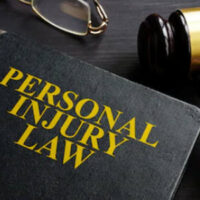What Is Considered A Reasonable Person In An Injury Case?

If a jury reviews the facts of your personal injury case, it will rely on the “reasonable person” standard to determine if the defendant was negligent. In other words, if a jury reviews the facts of your case, it will consider the question, “Would a reasonable person have acted in the same way the defendant did or would they have acted differently?” But what exactly is considered a “reasonable person” in a personal injury case? Read on to find out.
What Is a Reasonable Person in a Personal Injury Case?
The “reasonable person” standard is used in personal injury cases to ascertain if someone acted negligently. The “reasonable person” isn’t a real person. Instead, the “reasonable person” standard is a standard that defines how an individual should act or not act to avoid causing harm to others. This is an objective standard, meaning it does not take into account specific aspects of the defendant, and every person is held to the same level. In other words, the “reasonable person” is meant to be a broad representation of the community at large.
So, how does a reasonable person act? Generally, a reasonable person first thinks about the risks of engaging in a particular act. Then, after considering the risks, they act with average common sense and caution.
If a person fails to act reasonably and causes an injury to another, they could be held liable for the victim’s injuries and damages. For example, if a driver chooses to drink and drive, they may be held responsible if an accident happens that results in injuries and damages. Jurors will most likely conclude that a reasonable person would know that drunk driving is illegal and dangerous and avoid such behavior.
However, it is vital to note that what constitutes caution and common sense varies depending on the situation. It is also important to note that a reasonable person is not perfect. Mistakes happen all the time, and if a defendant committed a reasonable error, they might not be held liable.
What if the Defendant Could Not Foresee Danger?
The “reasonable person” standard does not apply in all situations. This standard only applies when a person could reasonably foresee how their conduct could cause injury. If a defendant couldn’t reasonably anticipate a risk, they might not be considered negligent. On the other hand, if a defendant could have reasonably foreseen the danger and proceeded to act the way they did, then they were not acting reasonably. Usually, it is up to jurors to decide what a reasonable person could have foreseen.
In conclusion, it is crucial to note that children are usually not held to the same “reasonable person” standard as adults. This is because children don’t have the maturity and prudence to understand the danger involved in doing certain things. Usually, when a child is involved, jurors measure the child’s actions against a child of the same education, age, knowledge, and experience. This situation can arise when an injured child could be partially to blame for their injury.
Contact Us for Legal Help
If you need help with your Florida personal injury case, our West Palm Beach personal injury attorneys at The Pendas Law Firm are here for you. Contact us to schedule a consultation.
The Pendas Law Firm also represents clients in the Miami, Orlando, Ocala, Tampa, Jacksonville, Bradenton, Fort Myers, Fort Lauderdale, and Daytona Beach areas.
Source:
law.cornell.edu/wex/negligent






